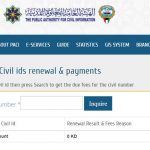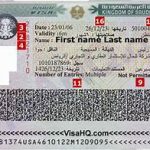Dr Muntasir Maruf: During the days of Ramadan, our food-habit and meal-time change. Changes also occur in our life-style. Some common physical complaints may occur due to these changes. But healthy food-habit, consciousness and physician’s advice can help us overcome those problems.
Fasting for many hours may lead to decreased blood glucose level (hypoglycaemia). Weakness, dizziness, tiredness, poor concentration, perspiring easily, feeling shaky, headache, palpitations, slurred speech, even fainting may be caused due to decreased blood glucose.
Most instances of hypo-glycemia are related to diabetes. Diabetes is a metabolic condition that leads to increased blood sugar level. Treatment is aimed at decreasing blood sugar; fasting may cause sugar levels dropping too low. So, diabetics may need to adjust the dosage of their medication consulting their physician during Ramadan.
Many people suffer abdominal problems during Ramadan. Abdominal discomfort, burning sensation, belching are common. Over-eating, too much fried, fatty and spicy foods like ‘peyaju’, ‘beguni’, ‘halim’ etc. carbonated soft drinks are the main reasons of these problems. ‘Attractive’, ‘mouth-watering’ fast foods, sold at road-side hotels and restaurants can cause these abdominal pain. These foods can also worsen the condition of peptic ulcers; even can cause bleeding from peptic ulcers .
Doctors’ advice is to avoid those spicy, fatty foods, over-eating; on the other hand they advise to drink fruit juices or better drink water. Patients of peptic ulcer should adjust their anti-ulcerant medication consulting their physicians.
Some people suffer from constipation due to excessive refined foods, too little water and less amount of fibre in the diet.
Too little fluid intake and decreased salt intake may lead to low blood pressure. Excessive sweating, weakness, tiredness, dizziness especially on getting up from sitting position, pale appearance and feeling faint are symptoms associated with low blood pressure. This tends to occur towards the afternoon. If these symptoms occur, low blood pressure should be confirmed by measuring the blood pressure. During Ramadan, persons with high blood pressure may need their medication adjusted consulting their doctors.
Besides, lack of calcium, magnesium and potassium in diet may lead to muscle cramps. So, the diet should include foods rich in the above minerals e.g. vegetables, fruit, dairy products, meat and dates.
Most of the health problems in Ramadan are likely to arise from inappropriate diet and over-eating. The diet should be health-friendly and nutritious. It should include sufficient amount of vegetables and fruits. Plenty of water should be consumed.
In fact, to remain healthy during the holy month, our diet should be as simple as possible like our normal diet.





